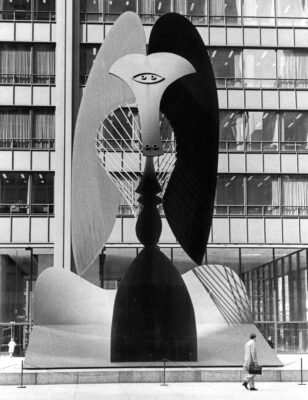
Another Reason Not to Support a Constitutional Convention
When Wickersham’s Conscience was a first-year law student, our Civil Procedure professor took us on a field trip to the Cook County Courthouse.1 Even fifty years later, three parts of that experience are still vivid in WC’s memory.

First, we watched as a geezer stuck his head out of the closed courtroom doors and asked the crowd waiting to come in, “Who’s first?”
One person said “Twenty.”
Another said “Thirty.”
The first person said “Forty.”
There was a short silence. The old geezer asked, “Who’s second?”
Someone said, “Twenty.”
You didn’t have to be a sophisticated litigator, or watch the money change hands, to figure out the that courtroom clerk was auctioning the calendar, the order in which cases would be heard. When U.S. Attorney James “Big Jim” Thompson broke up the Daley Machine, it turned out that a third of the auction proceeds went to the judge, a third to the clerk and the rest to the Daley Machine.
Mind you, this was the first thing we watched.
Second, after watching the civil calendar, we were invited back to the chambers of the presiding judge. He was affable, encouraging and morbidly obese. He answered our questions, encouraged us to apply for judicial clerkships on graduation and to study hard. A week later, he had been indicted for soliciting and accepting bribes. Three months later, he plead out to a deal that put him in prison for five years.
Third, we watched two hours of a judge-tried criminal trial, in front of a different judge. At the end of the trial, the judge found the defendant guilty. His attorney stood and asked, “Your Honor, the usual motions, please.”
The judge said, “Granted.”
And the defendant was handcuffed and taken off to jail. The “usual motions,” it turned out, were to be excused from standing near your client and for cash bail to be forfeited to pay the defense attorneys’ fees. Half the cash bail went to the defense attorney; the rest was split between the trial judge and the Daley Machine.
The delegates to the Alaska Constitutional Convention were sharply aware of the real perils of a politicized judicial system. It wasn’t as if Cook County’s corruption was a secret in 1972, or unique in America. Some of the Alaska delegates had lived through the Judge Arthur Noyes scandals in Nome, best described in Rex Beach’s 1906 novel, The Spoilers. They designed a system intended to minimize the risk of political corruption or undue influence of the judiciary.
And it has been highly successful. True, the judges don’t always rule the way the litigants want. More than one judge rejected WC cogent, well-considered, nearly irrefutable arguments and ruled the wrong way. But that’s no reason to throw the system out with changes to the Alaska Constitution.
We don’t need judges who are political appointees. We don’t need an Alaska version of the Daley Machine, or Tammany Hall, or any of the other corrupt judicial systems that have plagued America. Alaska gets good, smart, hardworking and honest judges. There’s nothing about Alaska’s judicial selection process that an honest man our woman would want to change.
WC no longer lives in Alaska, but if you want the advice of someone who lived there 61 years and practiced law in front of Alaska judges for 45 years, you’ll vote against the proposed constitutional convention.
Source: Wickersham’s Conscience
1 Known today, without a trace of irony, as the Richard J. Daley Courthouse. The one with the Picasso sculpture in front. The one that the Blues Brothers drove into near the end of the movie.